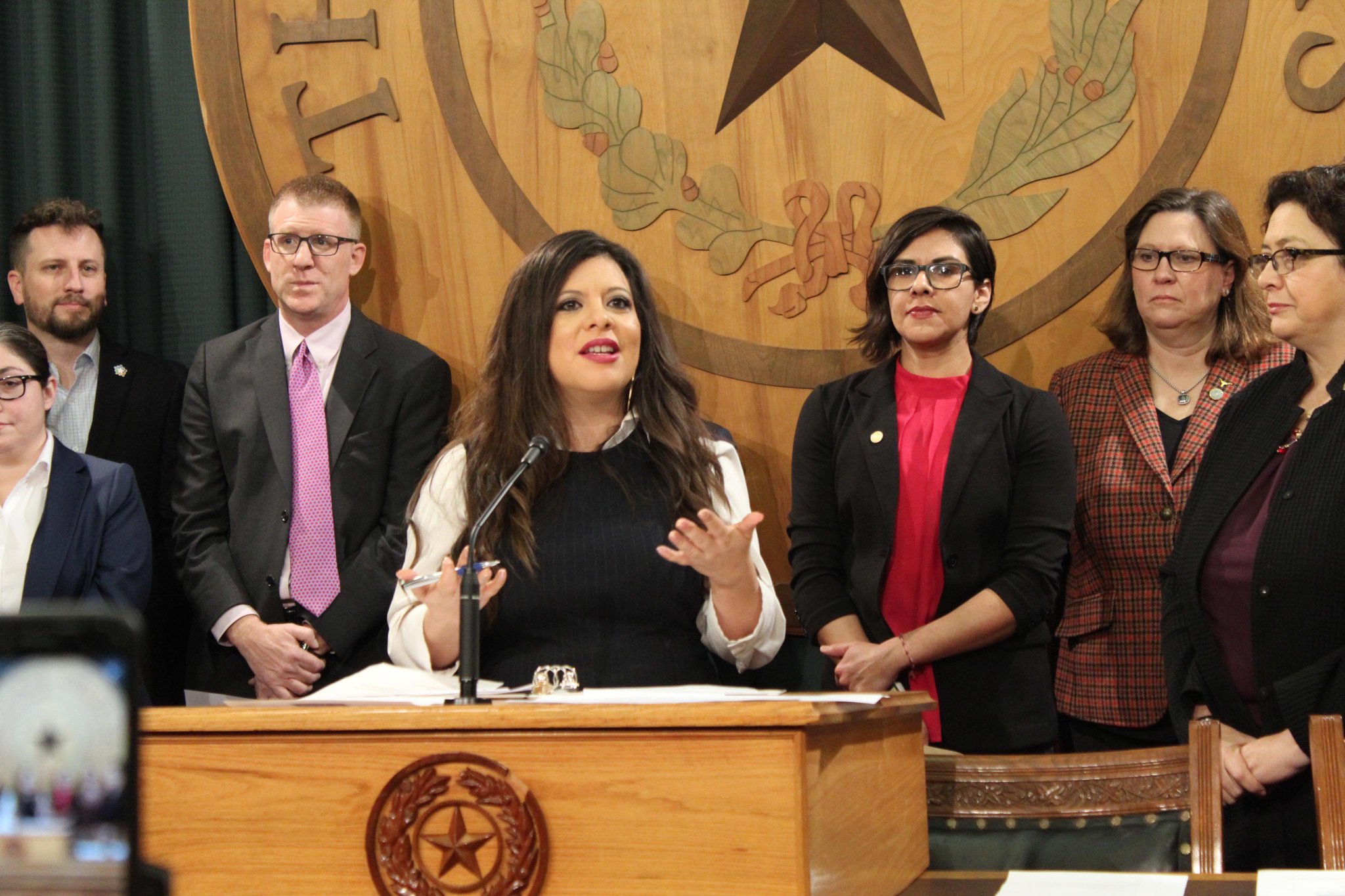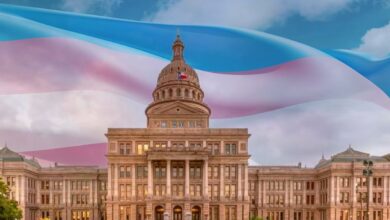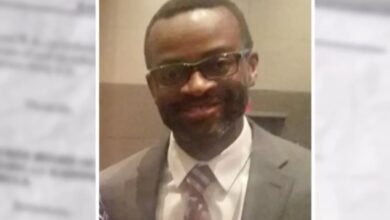
#BanTheBible Tries to Spread Irrational Fear
Democratic lawmakers shut down the lie and vow to continue fighting for the protections of LGBTQ Texans.

Anti-LGBTQ groups are pushing a new hashtag this legislative session: #BantheBible. The campaign, which is run by the anti-LGBTQ hate group Texas Values, seeks to warn Texans that passing legislation to protect LGBTQ civil rights would in essence be “Banning the Bible” and thereby discriminating against Christianity.
The religious advocacy organization launched a website, promoted the metadata tag #BantheBible, and began flooding social media and the press in February with allegations that pro-LGBTQ laws force Christians to violate their faith.
“‘Ban the Bible’ doesn’t have to mean confiscating physical Bibles. LGBT activists aren’t that obvious with their intentions (yet),” Texas Values communications associate James Wesolek wrote in The Federalist. “But it does mean something even worse. Stripping Texans of their right to practice biblical teachings in their day-to-day lives.”
Although the #BantheBible campaign is new to Texas, a virtually identical campaign was used in California last year, in response to a bill to ban the harmful and debunked practice of “conversion therapy.” The current campaign is being driven by a small, closely connected group of political donors––the same folks who drove the “bathroom bill” issue in 2017.
Queer Texans and their allies say that #BanTheBible is intended to scare voters and stir the pot in Austin. Rep. Mary Gonzalez (D-El Paso) believes Texas Values, a group involved in pushing the fearmongering slogan “No men in women’s bathrooms” is again selling a false narrative.
“These policies aren’t about banning the Bible,” Gonzalez, chair of the LGBTQ Caucus, said in an interview. “These policies are about not supporting discrimination. Texas Values knows that.”
Religious liberty is already guaranteed by the First Amendment, the Texas Constitution, and numerous other federal and state laws. None of the bills proposed by Democrats would alter the status quo in any way. In fact, these proposed nondiscrimination protections actually include people of all faiths from unfair discrimination in employment, housing, and public accommodations. And several of the laws being erroneously framed as “Ban the Bible” bills actually exempt religiously affiliated entities like churches and religious schools entirely.
Most of these bills seek to update existing statewide nondiscrimination laws to include LGBTQ people. One bill would simplify the process that transgender Texans must follow to change their gender markers. Another would remove language from a statute that compels HIV-education programs to convey the outdated and false claim that “homosexual conduct is not an acceptable lifestyle and is a criminal offense.” A third would allow voters to decide whether to repeal the Texas constitutional amendment that defines marriage as being between one man and one woman. That provision was ruled unconstitutional by the Supreme Court in 2015.
In almost every prior session, Democrats have filed similar bills, and none of them would restrict a citizen’s religious beliefs or practices in any way. What is different in this session is that for the first time in decades, Democrats have started winning in Texas.
During the 2018 election, state Democrats took several seats previously held by Republicans in both the House and the Senate. Although those victories didn’t grant legislative control to Democrats, it appears that the GOP losses did manage to scare the conservative groups who are generally fighting to make the state more dangerous for LGBTQ people through legislation like bathroom bills and so-called “religious freedom” laws.
Texas is a state run almost entirely by Republicans, and is one of 28 states where there are no explicit statewide laws protecting people from discrimination on the basis of sexual orientation or gender identity in employment, housing, and public accommodations. “It’s shocking to realize that in 2019, our State laws prohibiting unfair discrimination still don’t include LGBTQ Texans. The time is now to protect all Texans equally. Updating our laws to help end unfair discrimination is long overdue,” Gonzalez said.
A new report released by Equality Texas shows that discrimination still shapes the lives of many LGBTQ people and their families. A recent study found that a quarter of LGBTQ adults experienced some form of discrimination in the past year. And even those who had not experienced discrimination reported that the risk of discrimination affected major life decisions such as where to live or whether to apply for a new job.
On the bright side, data released by the national polling organization Public Religion Research Institute (PRRI) shows that 64% percent of Texas voters support laws to protect LGBTQ Texans from discrimination. A majority of every major demographic group, including white evangelicals, supports nondiscrimination laws.
Senator Jose Rodriguez (D-El Paso), author of the comprehensive non-discrimination Senate Bill 151 that would prohibit discrimination based on a person’s sexual orientation or gender identity and expression, says that despite the push against pro-LGBTQ legislation, he will continue to file bills to ensure that all Texans are afforded their constitutional rights.
“Texas is diminished when it sanctions the denial of housing or employment for LGBTQ Texans, or fights to keep unconstitutional and unenforceable laws on the books,” Rodriguez said. “Simply put, gay and trans Texans have the same values as anyone: to be secure in their livelihoods and to live a life of purpose, free from public discrimination.”
This article appears in the March 2019 edition of OutSmart magazine.











Comments